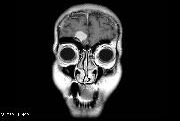Multiple Sclerosis (MS) is an illness of varied forms and presentations. MS may affect sensation, movement, vision, coordination or other functions. It is considered an illness of inflammation, affecting in particular the optic nerves, the brain or the spinal cord. MS is often diagnosed by a careful history, physical exam, and with testing by MRI or sometimes CSF (spinal tap).
Treatment of MS varies. People who are sensitive to attacks of MS symptoms may find these an be prevented with injected medications, such as copaxone, interferon beta 1a or beta 1b, infusions, or by oral medications, such as fingolimod or dimethylfumarate. People with symptoms of long-standing MS may benefit from treatment with aminopyridine, gabapentin, or other medicines that dampen symptoms.
MS may result in so-called primary or secondary symptoms, which deserve their own discussions. There are also illnesses that are similar to MS, but not identical, which deserve some attention.
What Is the cause of MS?
The cause of Multiple Sclerosis (MS) is not known. There are some unique factors involved
in MS that may lend a clue to the cause.
These are:
Geography– MS is more common in the Northern US, Canada, northern Europe than in
equatorial areas, by a factor of up to 30x
Genetics– some patients have an affected relative, although this is not especially common in
siblings or identical twins. Identical twins have only a 1/3 chance of sharing the illness.
Age– most patients with MS develop symptoms between the ages of 20-40, MS is rare in
children and in patients older than 60
Immune function– an abundance of CD4+ T-helper cells found in MS plaques, why are they
there?
Physiology– MS symptoms are worsened by hot temperatures, infections, smoking and
fatigue
Types of MS
Multiple Sclerosis is a condition that varies from very severe to very mild. There are four types of MS:
I. Relapsing Remitting MS
This is the most common kind. This consists of individual symptom attacks, usually lasting
longer than 24 hours, followed by recovery. There may be changes in the brain that
represent attacks of symptoms over many months or years. Many known MS treatments
are designed for this type.
II. Secondary Progressive MS
This is a type of MS in which there is a steady, often slow decline in function, without
individual attacks. It tends to occur many years after a course or Relapsing Remitting MS.
For some reason, not everyone with Relapsing Remitting MS develops this subtype. There
are a few treatments that are helpful for this type of MS.
III. Primary Progressive MS
This is a very rare type of MS that never has attacks. Often, there are no lesions in the brain in this type of MS. For that reason, it is difficult to diagnose. There are no treatments that are considered very helpful for this type of MS.
IV. Progressive Relapsing MS
This is also a rare type of MS. In this case, there are attacks of symptoms, without recovery.
Changes in the brain may be found on MRI. This type of MS may also respond to treatment.
MS Clinical Course
The clinical course of MS is highly variable, and it is probably a factor of MS being a syndrome, rather than a particular disease, uniform to all patients. MS may take one of these courses, at approximately these frequencies:
Benign 30% of cases, perhaps attacks will be rare, little treatment will be required
Malignant 10% of cases, frequent and /or severe attacks which may be resistant to
treatment
Neurologic dysfunction 60%, affecting either walking, vision, strength, sensation, etc.
Relapsing remitting 35-40%
Relapsing progressive 40-45%
Chronic, progressive 10-20%
Multiple Sclerosis: Secondary Symptoms
When we suffer from MS, we may have primary symptoms, which help to make the diagnosis, or secondary symptoms, less severe but debilitating symptoms that are not particular for the diagnosis of MS.
These may include:
- fatigue- are very common symptom in MS cases, many providers feel that regular exercise
helps to thwart this - transient numbness or tingling- symptoms of numbness that last less than 24 hours, these
are not necessarily new attacks - “relapses” of old symptoms- beware that an infection is not hiding somewhere, infections
tend to bring out old symptoms - urinary retention
- constipation
- joint pain, often due to abnormalities of walking
- memory loss- sometimes a significant burden of MS disease may cause difficulties with
thinking or memory, just as a significant burden of vascular disease can
